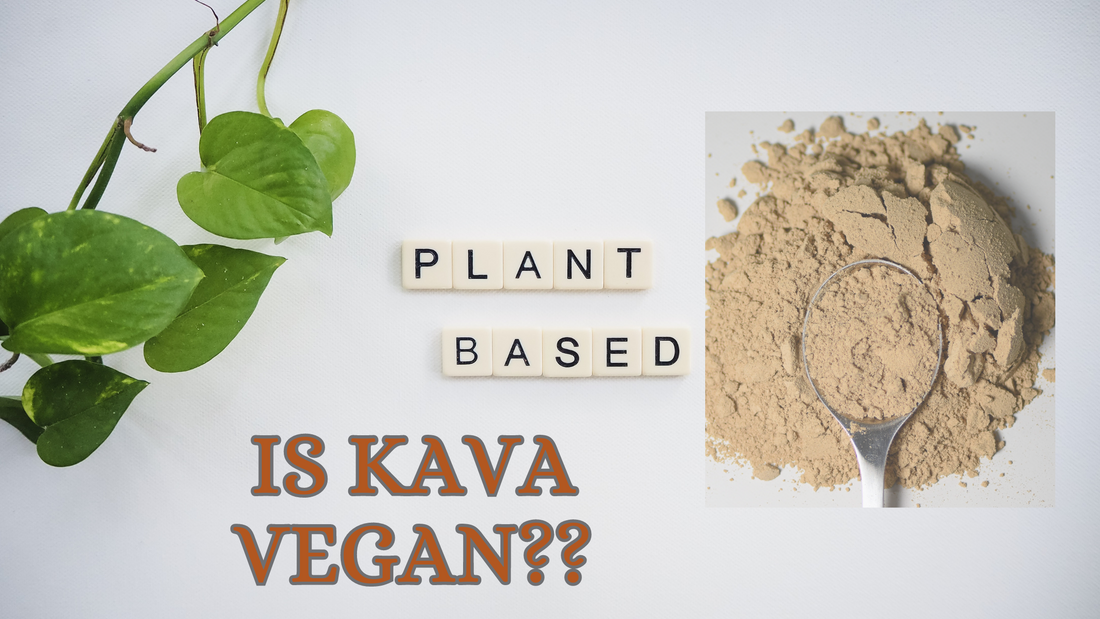
Is Kava Vegan-Friendly? The Facts You Need to Know
Share
Curious about whether Kava fits into your vegan lifestyle? Take a journey into the mystique that surrounds this age-old South Pacific beverage, now in the popular consciousness of the wellness world. Famous for its relaxation properties, Kava often is the topic of much debate as to whether it is plant-based friendly or not. But is it truly vegan-friendly? Join us as we go deep into what goes inside Kava, and how it is processed, and certified so that you can get a deeper understanding of whether this weird root fits the paradigm of veganism or if you are better off searching elsewhere. Prepare to make an educated decision on your next Kava experience.
Decoding Kava's Ingredients
Kava is rich in kavalactones, which are potent ingredients responsible for its desired psychoactive effects. Extracted from the root of the plant Kava, the compounds afterward are prepared through grinding and steeping, but sometimes through even more modern processes. Usually, these methods exclude animal products according to the very meaning of veganism, but things can get muddled when certain additives or processing aids come into question that may compromise Kava's purity.
Kava: Plant-Based or Not?
Kava in its simplest form should be completely compatible with veganism due to its botanical nature. The Kava root contains absolutely without animal products or protein whatsoever; therefore, it is a completely plant-based experience. However, certain types of Kava products include non-vegan additives, added to other processing agents that may be used in the aforementioned Kava products, and that requires caution when considering the vegan validity of products available for purchase. Needless to say, product labels will have to be scrutinized quite a bit as far as avoidance of the animal-based ingredients is concerned.
Environmental Footprint and Vegan Consideration
To many vegans, this environmental impact of production is just as important as the absence of animal by-products. Growing methods that, for all essential purposes, border on organic farming, along with related fair trade, go deep into the ethics that underpin veganism. The more ecologically conscious approach towards Kava cultivation by consumers will mean they can make their choices not only by diet preference but also by supporting the sustainable and responsible way of farming, contributing less harm to the planet.
Kava and Veganism: Your Questions Answered
- Is Kava naturally vegan? Yes, Kava itself is vegan.
- Does Kava have animal-based hidden ingredients? Though most Kava products are still free from animal-based ingredients, having an eye on the labels is important.
- And what about Kava capsule or extract? These products must also be vetted for vegan certification because they can contain non-vegan fillers or excipients.
Where to Get High-Quality Vegan-Friendly Kava Products
At Healing Herbals, we specialize in offering only the best quality Kava products in a way that suits your needs-vegan friendly. We pride ourselves on offering organic herbs to ensure that our kava meets vegan standards. You can go onto our website Healing Herbals for more information.
Conclusion
In other words, Kava is a botanical treasure that per se is vegan; however, consumers should also take into consideration the addition of non-vegan additives and processing affecting vegan status. You will be able to consume Kava in service to your commitments, through ethical and dietary means, when you choose vegan-certified products that take into account environmental impact.
Kava products from Healing Herbals.
Read more about KAVA:










